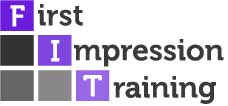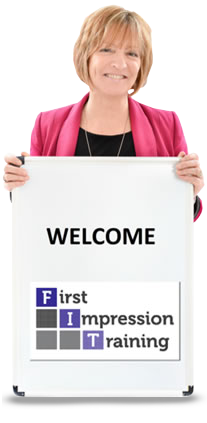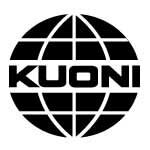Welcome to the SOS February Edition: Embracing Excellence in Customer Service
As we step into February, it’s the perfect time to reassess our customer service strategies and discover new ways to delight our clients. This month, we spotlight three key elements that can elevate service standards: personalisation, proactive communication, and continuous learning. Small yet impactful adjustments in these areas can make all the difference in fostering customer loyalty and driving business success.

Personalisation: Crafting Unique Customer Experiences
In today’s competitive market, personalisation is a game-changer. Customers appreciate businesses that remember their preferences and tailor interactions accordingly. To enhance customer relationships, consider:
✔ Leveraging Customer Data – Use purchase history and past interactions to offer tailored recommendations and solutions. For example, a retail store could send a personalised email suggesting complementary products based on a customer’s previous purchases.
✔ Personalised Communications – Address customers by name, reference their previous experiences, and make interactions feel more meaningful. For instance, a service provider could follow up on a past inquiry with a customised solution instead of a generic response.
✔ Celebrating Milestones – Recognise birthdays, anniversaries, and loyalty milestones with special messages or exclusive offers. A hotel chain, for example, could send a discount code or free room upgrade to repeat guests celebrating their one-year membership.
By implementing these personalised touches, you can create memorable experiences that foster deeper connections and long-term loyalty.

Proactive Communication: Staying Ahead of Customer Needs
Anticipating customer needs and addressing potential issues before they arise significantly enhances the overall experience. Here’s how to stay proactive:
✔ Regular Updates – Keep customers informed about new products, services, or changes that might impact them. A subscription-based business, for example, could send automated reminders before a renewal with details on what’s new in the next cycle.
✔ Pre-emptive Solutions – If a known issue may affect customers, inform them in advance and offer solutions or alternatives. A software company, for example, could notify users about a scheduled update and provide troubleshooting steps for potential disruptions.
✔ Feedback Channels – Establish accessible ways for customers to share feedback and show them their input matters by taking action. A restaurant could implement a quick post-meal feedback survey via QR code and adjust menu items based on customer suggestions.
Proactive communication builds trust, enhances transparency, and strengthens customer relationships.

Continuous Learning: Investing in Your Team’s Development
A well-trained team is the backbone of exceptional customer service. Prioritising continuous learning ensures your employees remain engaged, confident, and skilled. Consider these approaches:
✔ Regular Training Sessions – Schedule workshops to keep the team updated on industry trends and customer service best practices. A call centre could conduct monthly role-play sessions to practice handling difficult customer interactions effectively.
✔ Encourage Skill Development – Support employees in pursuing relevant courses or certifications that enhance their expertise. A retail company, for example, could reimburse employees for completing customer service or leadership training programs.
✔ Foster a Learning Culture – Promote knowledge-sharing within your team and create an environment where employees feel empowered to grow. A hospitality business might introduce a mentoring program where experienced staff guide new employees through real-world customer interactions.
By investing in professional development, you equip your team to handle diverse customer scenarios with confidence and excellence.

The Power of Empathetic Copywriting: Speaking to Your Customers’ Pain Points
Effective communication isn’t just about delivering a message—it’s about crafting copy that resonates with your audience by understanding and addressing their challenges. When businesses acknowledge their customers’ pain points and provide solutions, they establish trust and foster deeper engagement. Here’s why empathetic copywriting is crucial:
✔ Acknowledging Customer Struggles – Customers and prospects face real challenges in their sales and customer service delivery plans. Demonstrating that you understand these obstacles makes your messaging more relatable and impactful.
✔ Offering Solutions, Not Just Products – Instead of just promoting services, frame your offerings as solutions to pressing issues. For example, rather than saying, “Our CRM software has advanced features,” say, “Struggling to keep track of customer interactions? Our CRM simplifies customer management so you can focus on delivering great service.”
✔ Using Customer-Centric Language – Shift the focus from your business to the customer. Phrases like “You deserve a seamless customer experience” or “We help you deliver outstanding service with ease” make the message more engaging and personal.
✔ Eliciting an Emotional Connection – People are more likely to take action when they feel understood. Crafting messages that show empathy, such as “We know managing a team can be overwhelming—we’re here to make it easier,” creates a stronger bond with your audience.
By writing with empathy, your messaging becomes more persuasive, customer-focused, and aligned with what your audience truly needs.

Book Spotlight: Your Best Year Yet by Jinny Ditzler
Setting and achieving meaningful goals is essential for personal and professional growth, and Your Best Year Yet by Jinny Ditzler offers a structured, repeatable process to do just that. The book’s 10-question framework encourages readers to reflect on past achievements, identify limiting beliefs, and set clear, actionable goals for the future.
A key theme of the book is the power of mindset and self-belief—Ditzler argues that external circumstances don’t define success, but rather, our internal narratives do. By replacing self-imposed limitations with empowering beliefs, readers can create a roadmap for continuous growth. The book also highlights the importance of accountability, with strategies to maintain focus, track progress, and ensure goals align with personal and professional values.
Whether you’re looking for a fresh start or aiming to take your success to the next level, Your Best Year Yet is a valuable guide for turning aspirations into reality.

Looking Ahead: Preparing for Future Success
As we progress through 2025, let’s stay committed to refining our customer service strategies. By embracing personalisation, proactive communication, and continuous learning, we can exceed customer expectations and foster lasting loyalty.
Here’s to a successful and service-focused month ahead and don’t forget – if you’d like to find out how we might best help and support your people development plans, do feel free to book your 1:1 Discover Call with a member of the FIT team here https://firstimpression.training/DiscoveryCall30
Warm regards, Marie Cross & The First Impression Training Team

















